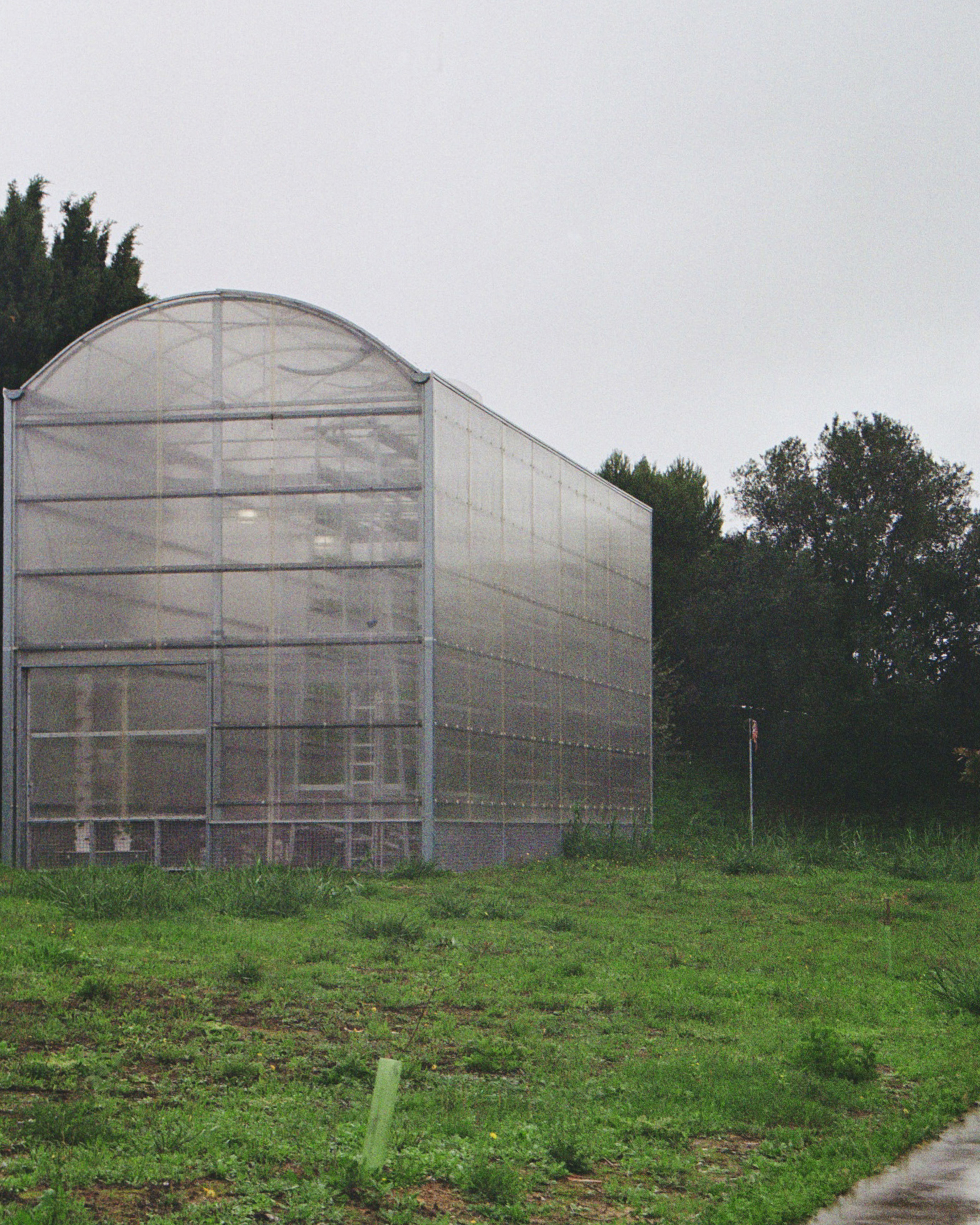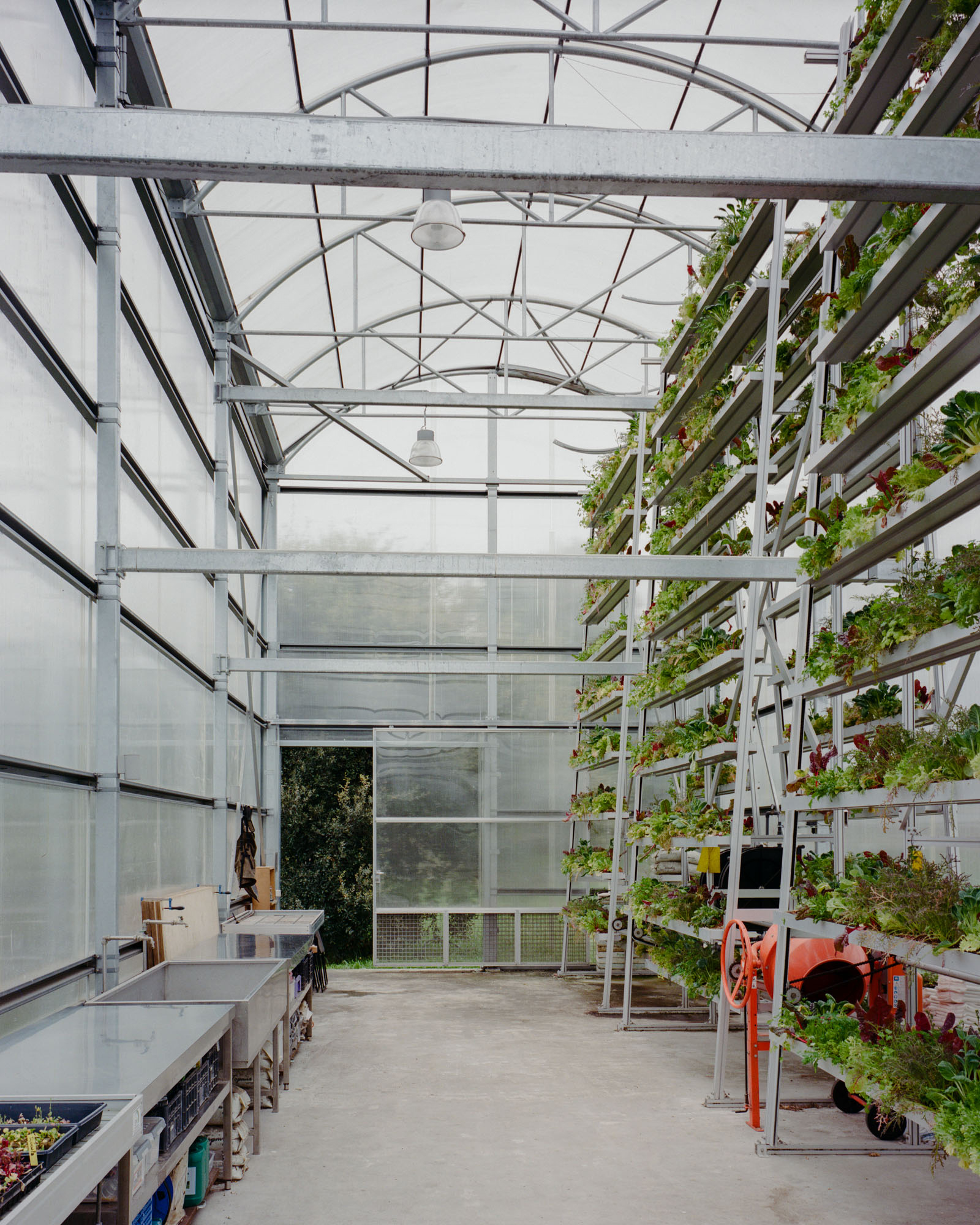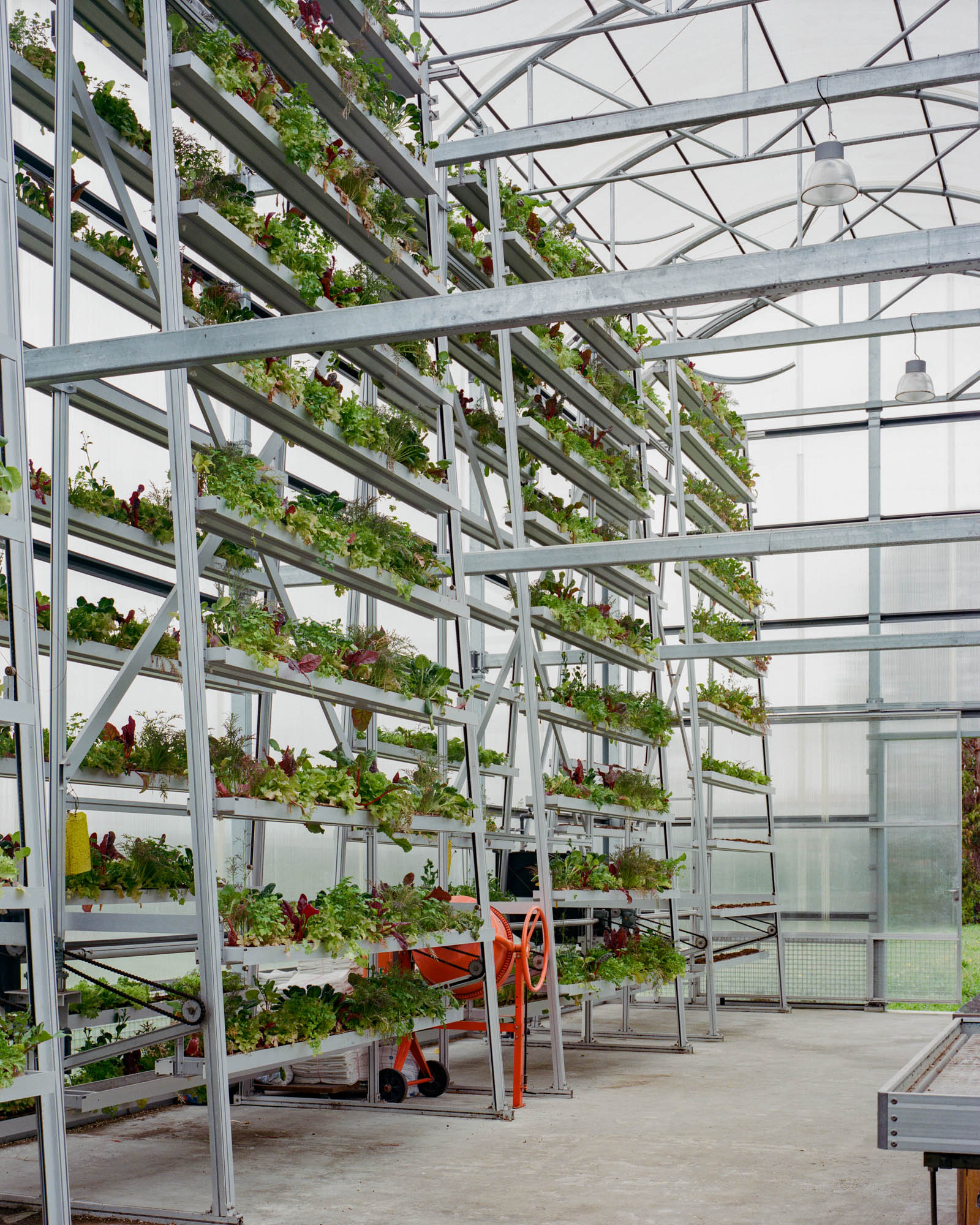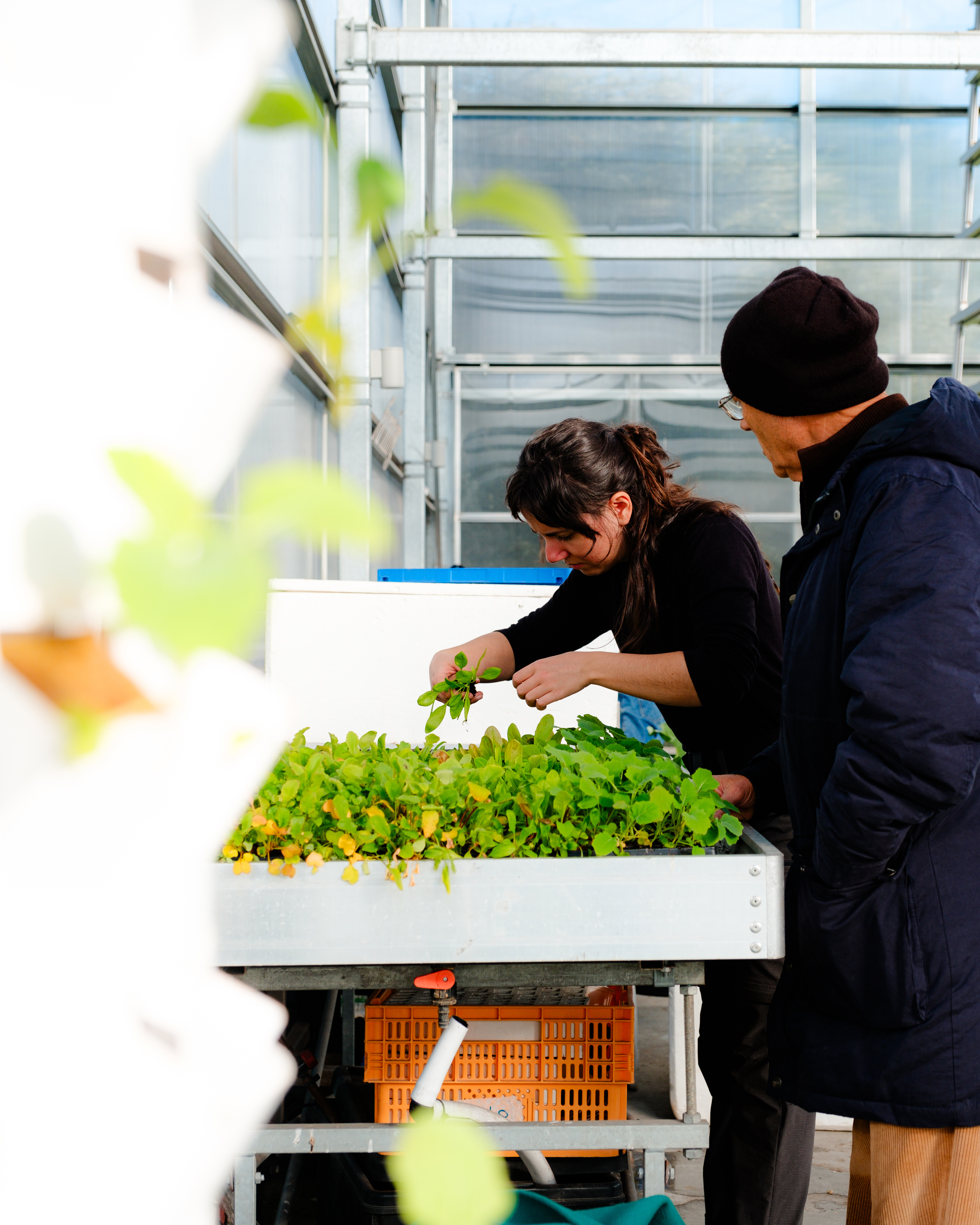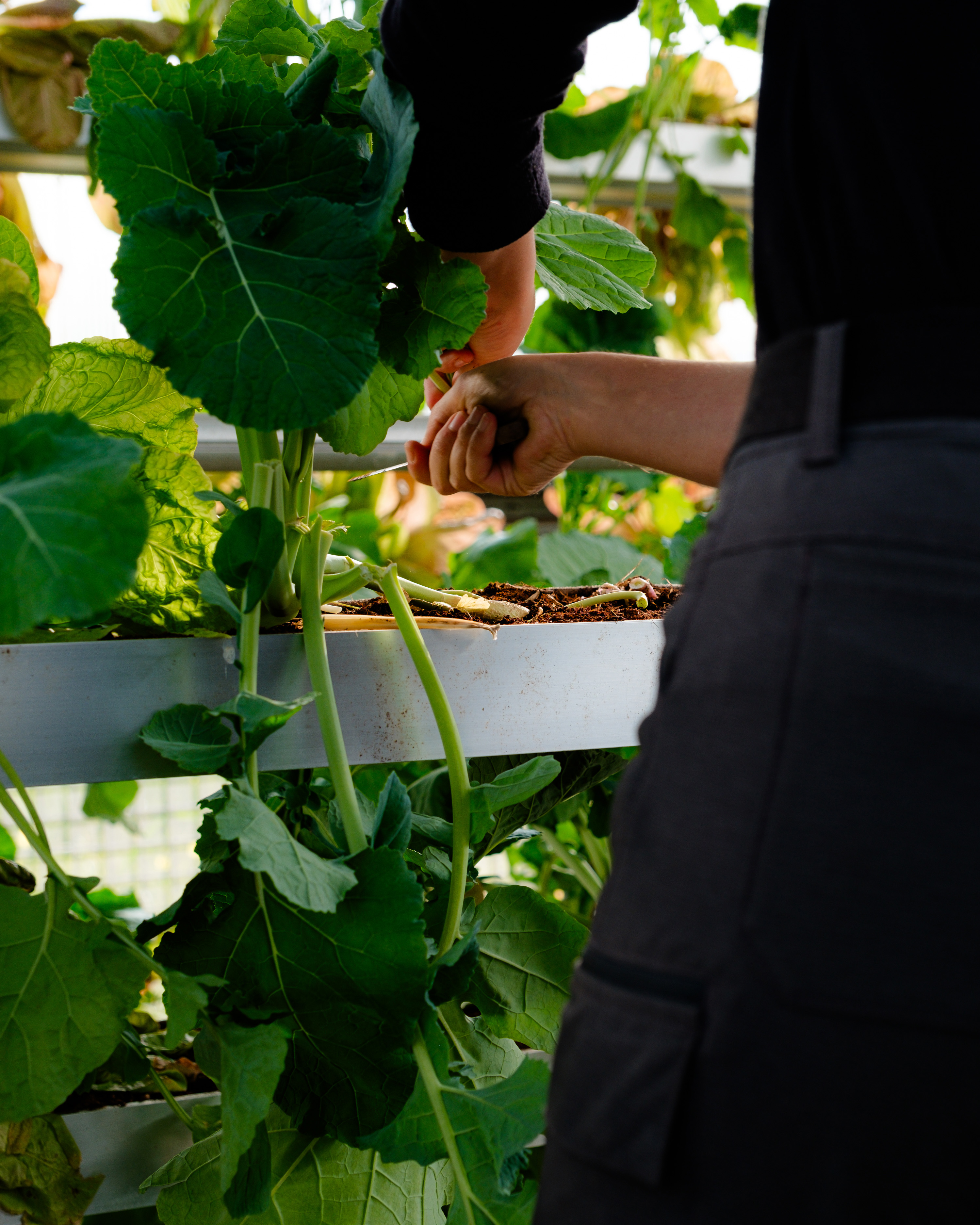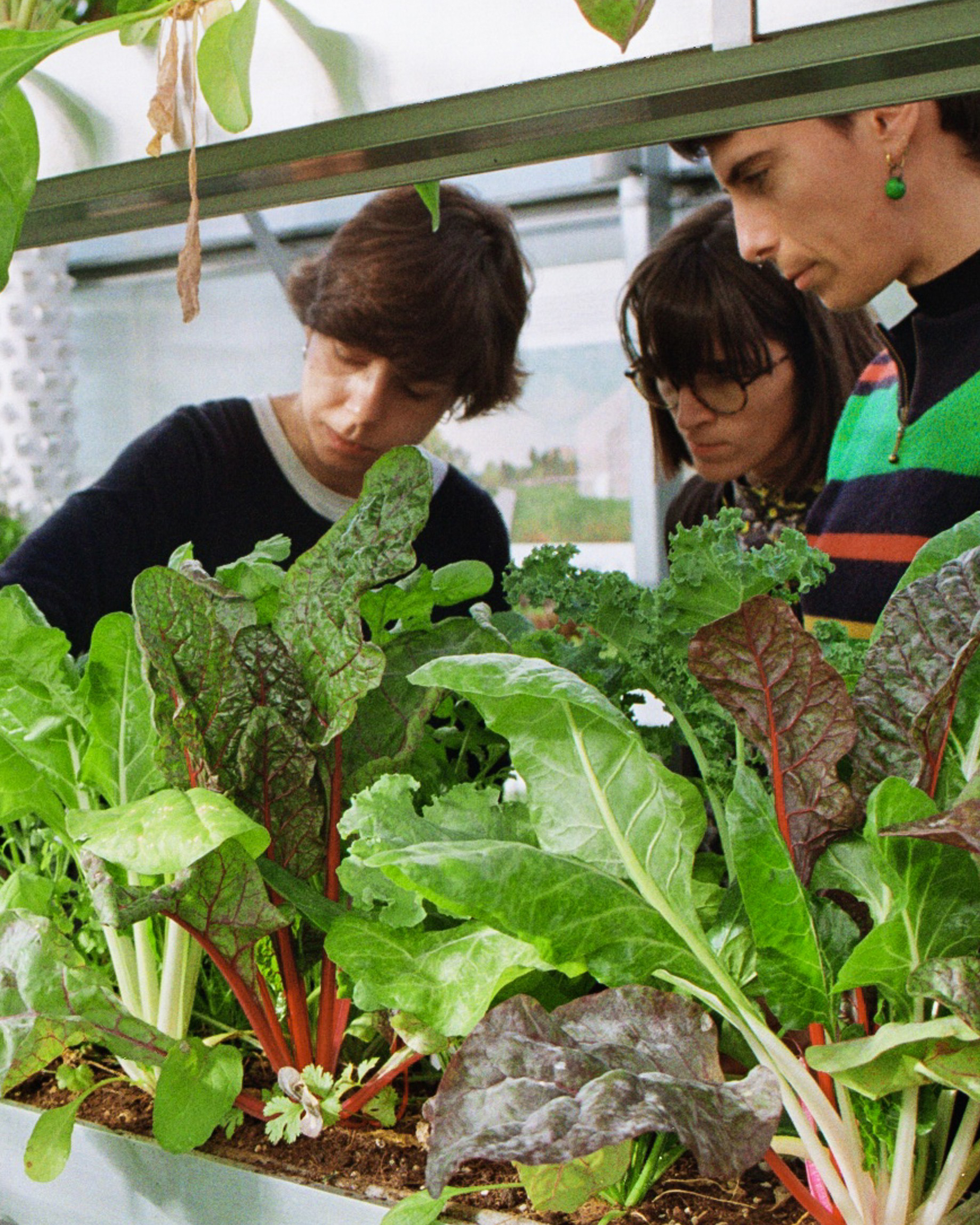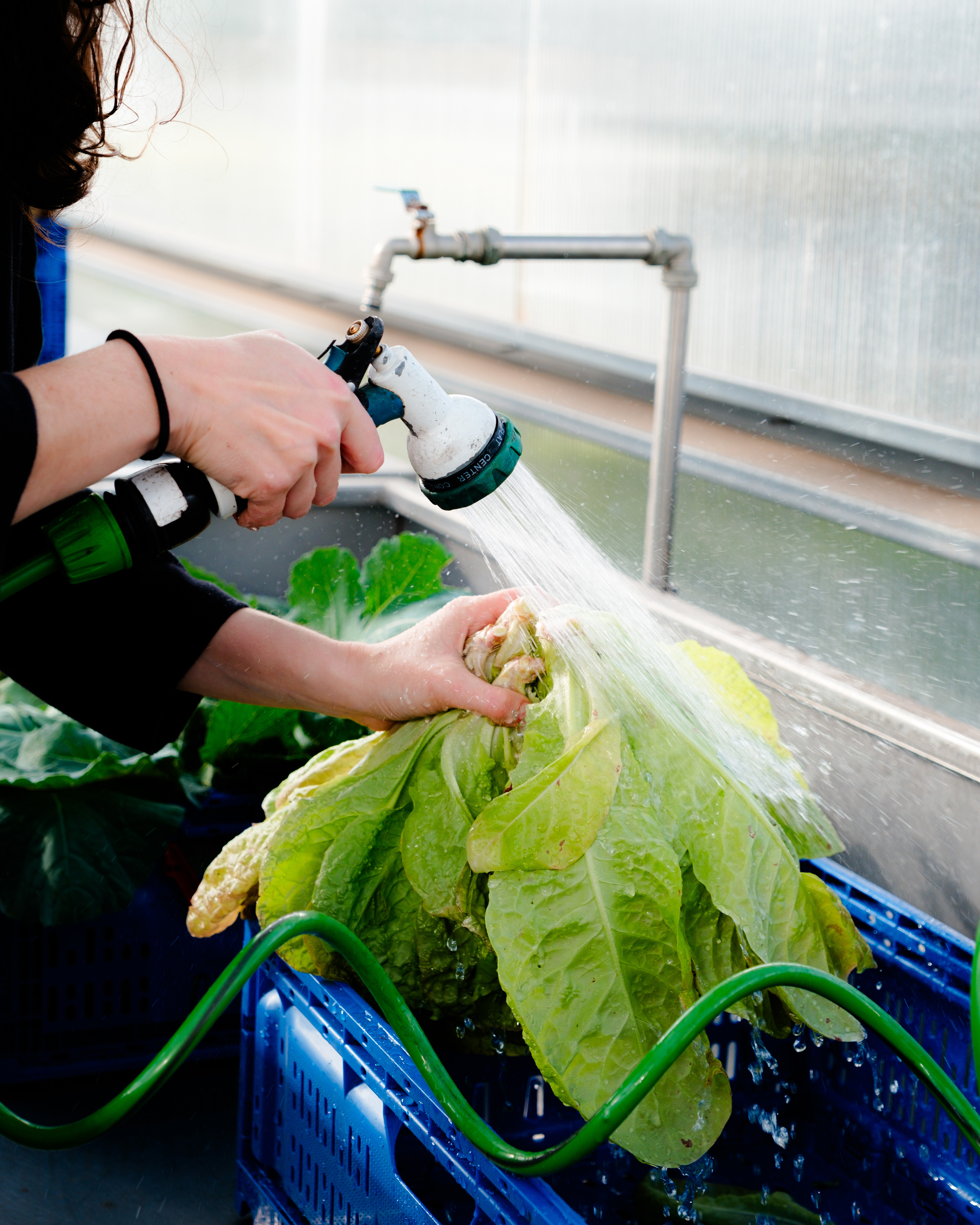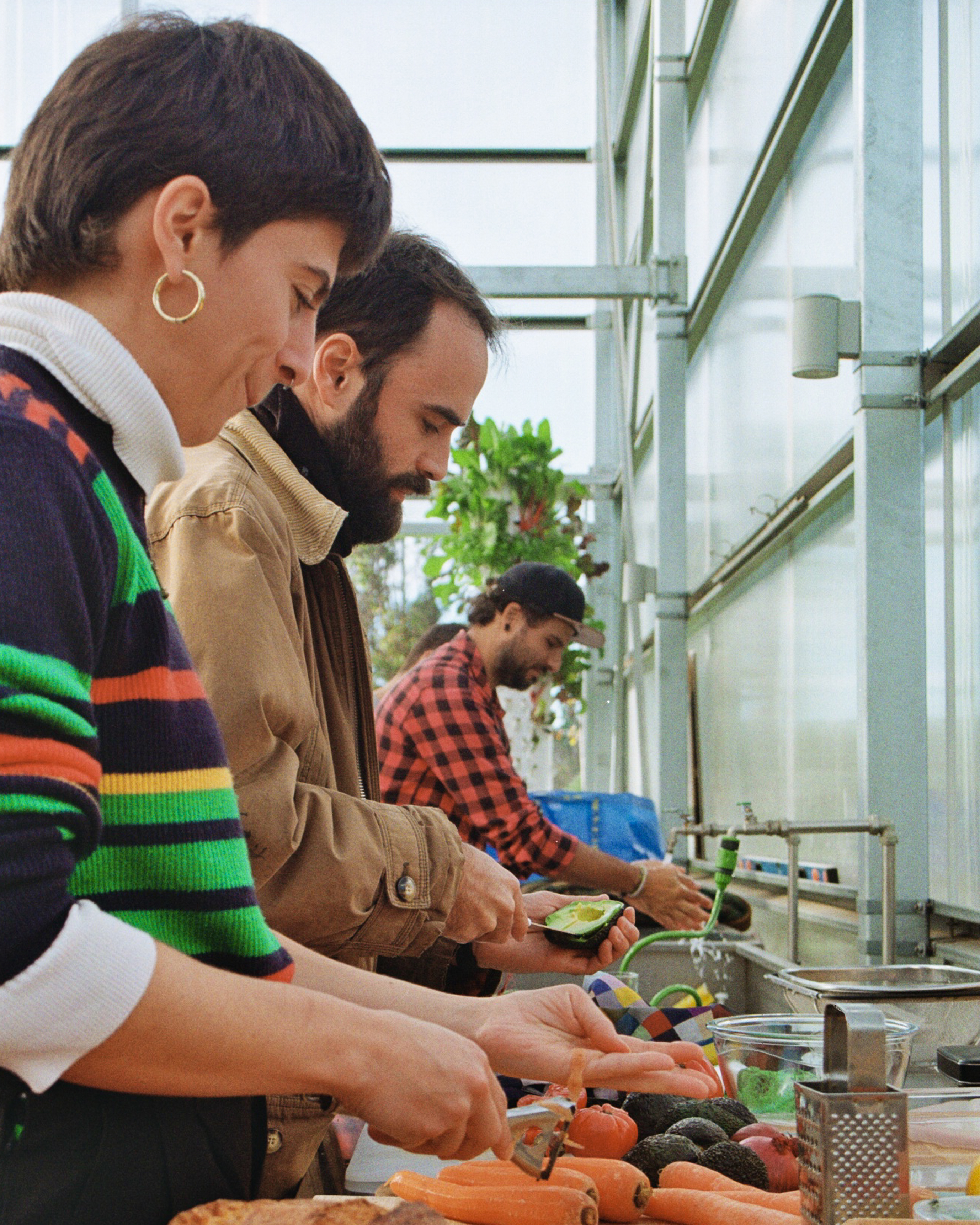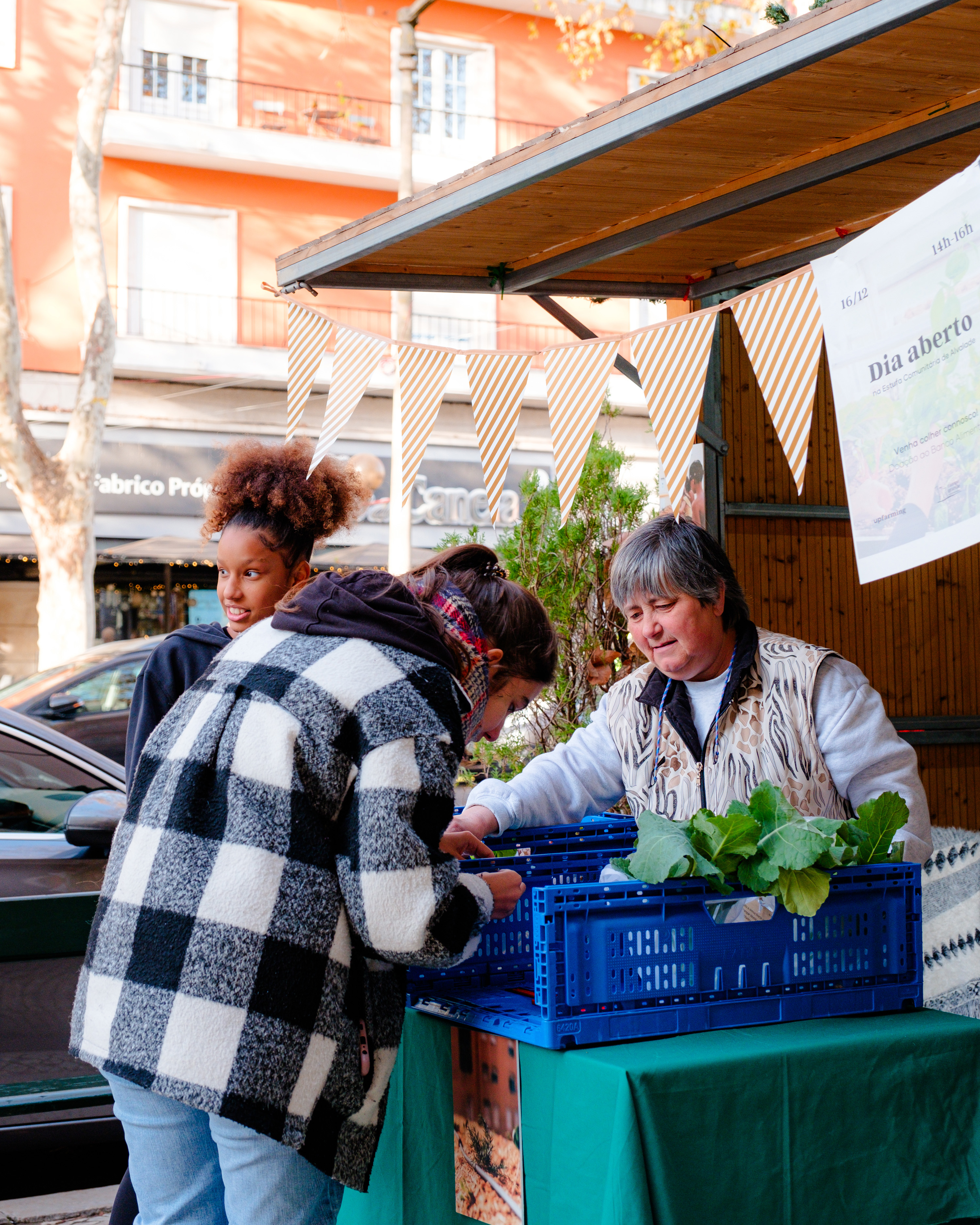Prioritising the places and people that need it the most
Sky to Table
Sky to Table: A Greenhouse for the Community
Sky to Table turns an urban space into a vibrant community greenhouse, where food, education, and connection grow together. By empowering local, vulnerable groups to cultivate fresh products and learn about sustainable practices, it tackles food insecurity and fosters social inclusion. A fresh, green solution for a healthier and more connected future.
Portugal
Local
Lisbon
Mainly urban
It refers to a physical transformation of the built environment (hard investment)
Yes
2023-06-22
No
No
No
As a representative of an organisation
Sky to Table aims to enhance food production sustainability by efficiently utilizing urban spaces and minimizing distribution distances. It promotes food and environmental literacy through community participation in local food production while integrating vulnerable populations - often marginalized due to ethnicity, age, economic status, or disability - into the broader community. By involving these groups and the overall local community, the project fosters social inclusion, environmental awareness, and communal support.
We focus on two main target groups: vulnerable populations and nearby neighborhoods facing social disadvantage, and the local community at large. Our approach bridges gaps between these groups, encouraging mutual support and collective empowerment.
The specific objectives include producing local vegetables using vertical cultivation techniques to maximize urban space efficiency. The production is donated to the Lisbon Food Bank and local charity institutions, directly aiding those in need. Additionally, we engage community members with regular educational activities that address sustainability, ecology, and food production. These sessions are designed to build food literacy and encourage hands-on participation in growing local produce.
In summary, our project not only creates a sustainable urban agriculture model but also strengthens community bonds by applying a co-governance model. It empowers individuals by involving them in the production of their own food, raises environmental and food literacy, and supports vulnerable groups through direct donations and social integration. Through these combined efforts, the initiative contributes to a more resilient, inclusive, and environmentally conscious community.
We focus on two main target groups: vulnerable populations and nearby neighborhoods facing social disadvantage, and the local community at large. Our approach bridges gaps between these groups, encouraging mutual support and collective empowerment.
The specific objectives include producing local vegetables using vertical cultivation techniques to maximize urban space efficiency. The production is donated to the Lisbon Food Bank and local charity institutions, directly aiding those in need. Additionally, we engage community members with regular educational activities that address sustainability, ecology, and food production. These sessions are designed to build food literacy and encourage hands-on participation in growing local produce.
In summary, our project not only creates a sustainable urban agriculture model but also strengthens community bonds by applying a co-governance model. It empowers individuals by involving them in the production of their own food, raises environmental and food literacy, and supports vulnerable groups through direct donations and social integration. Through these combined efforts, the initiative contributes to a more resilient, inclusive, and environmentally conscious community.
Social Empowerment
Sustainable Food Systems
Community
Food Literacy
Environmental Literacy
Environmental sustainability is one of the key principles guiding Sky to Table. Integrated within the Aquilino Ribeiro Machado Garden and Horticultural Park, this greenhouse unit fosters social inclusion through ecological practices. In this space, food is produced through a collective process. As a result, beneficiaries have access to fresh, organically grown, and locally produced food, thereby improving their ability to obtain nutritious food and make more informed choices. Additionally, the community involved in the project gains a critical understanding of the current global food system, which presents challenges for both present and future generations, and disproportionately impacts the most vulnerable segments of the population.
Social sustainability is another key aspect of the project, focusing on building resilient communities through equal access to resources and knowledge. A significant portion of the fresh vegetables is donated to local food banks, supporting vulnerable families in surrounding communities who would otherwise not have access to such fresh produce. Education plays a central role as well, offering a practical, hands-on connection to food production. From seed selection to harvest, participants of all ages and backgrounds engage in a "learning by doing" process that sparks a snowball effect, gradually changing their consumption habits and strengthening local food networks.
Finally, financial sustainability plays a crucial role. Initially, the project was funded through the BIP/ZIP Program – Neighborhoods and Priority Intervention Areas of Lisbon. Currently, the active community is exploring a Community Supported Agriculture model, where neighbors can contribute by buying a monthly basket of fresh vegetables. This approach helps secure the income needed to cover the consumable materials, essential for the project to function effectively, ensuring a long-term balance between solidarity and resilience.
Social sustainability is another key aspect of the project, focusing on building resilient communities through equal access to resources and knowledge. A significant portion of the fresh vegetables is donated to local food banks, supporting vulnerable families in surrounding communities who would otherwise not have access to such fresh produce. Education plays a central role as well, offering a practical, hands-on connection to food production. From seed selection to harvest, participants of all ages and backgrounds engage in a "learning by doing" process that sparks a snowball effect, gradually changing their consumption habits and strengthening local food networks.
Finally, financial sustainability plays a crucial role. Initially, the project was funded through the BIP/ZIP Program – Neighborhoods and Priority Intervention Areas of Lisbon. Currently, the active community is exploring a Community Supported Agriculture model, where neighbors can contribute by buying a monthly basket of fresh vegetables. This approach helps secure the income needed to cover the consumable materials, essential for the project to function effectively, ensuring a long-term balance between solidarity and resilience.
Sky to Table’s key objectives focus on enhancing aesthetics and quality of experience by creatively integrating food production with urban design, ultimately enriching cultural benefits for the community. At the core of this initiative is the efficient utilization of urban space, achieved through the design and implementation of a greenhouse that employs cutting-edge vertical farming technology. Featuring towers with rotating shelves, it not only optimizes space but also serves as an engaging, interactive, and accessible installation. It sparks curiosity and invites the local community to explore and participate in its activities, thereby blending innovation with experiential learning.
Strategically located in Aquilino Ribeiro Machado Garden and Horticultural Park, an urban park in the heart of Lisbon adjacent to the main airport. Historically, the park’s location between contrasting socioeconomic groups, as well as its elongated shape and proximity to high noise sources such as the airport and busy roads, have isolated it and thus limited its use. With the introduction of this project, the park is transformed into a vibrant, productive space that offers a pleasant and socially rich environment. The reimagining of the space and its surrounding dynamics is a tool for fighting social segregation within local communities, and also breaking the discontinuity of the urban matrix.
By merging innovative design with social and environmental benefits, the project stands as an exemplary model of how urban spaces can be re-converted. It not only reclaims and revitalizes an underused public space, but also serves as a catalyst for social inclusion and environmental awareness. Thereby, Sky to Table merges aesthetics with participatory dynamics and different realms of sustainability in densely populated urban areas.
Strategically located in Aquilino Ribeiro Machado Garden and Horticultural Park, an urban park in the heart of Lisbon adjacent to the main airport. Historically, the park’s location between contrasting socioeconomic groups, as well as its elongated shape and proximity to high noise sources such as the airport and busy roads, have isolated it and thus limited its use. With the introduction of this project, the park is transformed into a vibrant, productive space that offers a pleasant and socially rich environment. The reimagining of the space and its surrounding dynamics is a tool for fighting social segregation within local communities, and also breaking the discontinuity of the urban matrix.
By merging innovative design with social and environmental benefits, the project stands as an exemplary model of how urban spaces can be re-converted. It not only reclaims and revitalizes an underused public space, but also serves as a catalyst for social inclusion and environmental awareness. Thereby, Sky to Table merges aesthetics with participatory dynamics and different realms of sustainability in densely populated urban areas.
Inclusive governance is a core element here, with decisions made not only by the institutions that provide structure, but also by the communities and individuals directly involved. Communication is maintained with a multilevel matrix of stakeholders, sharing insights on the needs and priorities of vulnerable groups, ensuring the project stays aligned with their concerns.
By incorporating vertical farming technology, which requires minimal physical effort to handle, the greenhouse becomes accessible to seniors and individuals with limited mobility. This approach promotes greater inclusivity, encouraging broader community participation and removing barriers to involvement in local food production and overall horticulture practices, which typically require an average level of mobility.
To further promote inclusion, a significant portion of the harvest is donated to the Lisbon Food Bank, directly benefiting families in need. Moreover, individuals in vulnerable social situations such as poverty or ethnic and gender-based exclusion are empowered to sell fresh vegetables, promoting financial independence and self-sufficiency, as well as a sense of belonging in the broader community.
Sky to Table also promotes food and environmental literacy through regular educational activities in the greenhouse, which encourage intergenerational learning and active participation in local food production. It ensures that individuals of all ages and backgrounds increase their knowledge and awareness on current food system dynamics and overall environmental impacts of the urban setting.
In conclusion, by combining accessible technology, community participation, social impact, and environmental literacy, the project transforms food production into a shared and inclusive opportunity. Its systemic approach ensures that everyone, regardless of age, ability, or background, can actively contribute and benefit. More than a greenhouse, it stands as a model for a fairer and connected society.
By incorporating vertical farming technology, which requires minimal physical effort to handle, the greenhouse becomes accessible to seniors and individuals with limited mobility. This approach promotes greater inclusivity, encouraging broader community participation and removing barriers to involvement in local food production and overall horticulture practices, which typically require an average level of mobility.
To further promote inclusion, a significant portion of the harvest is donated to the Lisbon Food Bank, directly benefiting families in need. Moreover, individuals in vulnerable social situations such as poverty or ethnic and gender-based exclusion are empowered to sell fresh vegetables, promoting financial independence and self-sufficiency, as well as a sense of belonging in the broader community.
Sky to Table also promotes food and environmental literacy through regular educational activities in the greenhouse, which encourage intergenerational learning and active participation in local food production. It ensures that individuals of all ages and backgrounds increase their knowledge and awareness on current food system dynamics and overall environmental impacts of the urban setting.
In conclusion, by combining accessible technology, community participation, social impact, and environmental literacy, the project transforms food production into a shared and inclusive opportunity. Its systemic approach ensures that everyone, regardless of age, ability, or background, can actively contribute and benefit. More than a greenhouse, it stands as a model for a fairer and connected society.
Sky to Table exemplifies participatory, multilevel, and transdisciplinary engagement by transforming an underutilized public space into a community greenhouse. Designed as an inclusive and educational space, it actively involves citizens of all ages and backgrounds.
Children from disadvantaged communities engage in planting activities, learning about climate action and food systems. Women at risk of exclusion cultivate and sell fresh produce, fostering financial independence. Seniors from Parish Centers and the Cycling Without Age program contribute to harvesting, promoting intergenerational exchange. Community gardeners use the greenhouse to protect seedlings and improve yields.
The project connects individuals, NGOs, and public institutions through monthly activities co-organized with institutional partners. A key outcome is its direct impact on food security—each month, a portion of the harvest is donated to the Lisbon Food Bank, supporting vulnerable families. By engaging multiple stakeholders, Sky to Table strengthens social cohesion and empowers communities.
Bringing together urban planning, environmental sciences, and social work, the project innovates in urban agriculture. Its rotating vertical farm technology drastically reduces water use, eliminates transport emissions, and minimizes food waste. The greenhouse serves as both a food production space and an educational hub, promoting sustainable food systems and ecology and circular economy principles.
Beyond function, the greenhouse is an inviting, regenerative space with permaculture vegetable beds, seasonal wildflowers, and rotating crops. This design fosters well-being, community interaction, and demonstrates how urban spaces can be reimagined to serve both people and the planet.
Through its participatory nature, strong multi-stakeholder collaboration, and interdisciplinary approach, Sky to Table stands as a replicable model for inclusive, sustainable urban development.
Children from disadvantaged communities engage in planting activities, learning about climate action and food systems. Women at risk of exclusion cultivate and sell fresh produce, fostering financial independence. Seniors from Parish Centers and the Cycling Without Age program contribute to harvesting, promoting intergenerational exchange. Community gardeners use the greenhouse to protect seedlings and improve yields.
The project connects individuals, NGOs, and public institutions through monthly activities co-organized with institutional partners. A key outcome is its direct impact on food security—each month, a portion of the harvest is donated to the Lisbon Food Bank, supporting vulnerable families. By engaging multiple stakeholders, Sky to Table strengthens social cohesion and empowers communities.
Bringing together urban planning, environmental sciences, and social work, the project innovates in urban agriculture. Its rotating vertical farm technology drastically reduces water use, eliminates transport emissions, and minimizes food waste. The greenhouse serves as both a food production space and an educational hub, promoting sustainable food systems and ecology and circular economy principles.
Beyond function, the greenhouse is an inviting, regenerative space with permaculture vegetable beds, seasonal wildflowers, and rotating crops. This design fosters well-being, community interaction, and demonstrates how urban spaces can be reimagined to serve both people and the planet.
Through its participatory nature, strong multi-stakeholder collaboration, and interdisciplinary approach, Sky to Table stands as a replicable model for inclusive, sustainable urban development.
Sky to Table was designed and implemented through a multilevel engagement approach, ensuring that stakeholders at various levels played an active role in shaping the impact of the initiative.
At the local level, the community itself is at the heart of the project. Active members contribute to daily activities, shaping the initiative through their direct involvement. Their hands-on participation ensures that the project remains relevant, accessible, and responsive to their needs, fostering a strong sense of ownership and commitment.
At the regional level, key partners play an essential role. The project was designed in cooperation with the Lisbon City Council and the Alvalade Parish Council. The Lisbon Food Bank distributes fresh vegetables to families in need, strengthening food security. Local charities receive vegetables and also facilitate outreach, providing logistical support. The Cycling Without Age NGO enhances inclusivity by enabling mobility-impaired people to participate.
At the national level, Sky to Table contributed to advocacy efforts through its involvement with FoodLink - the network for food transition in the Lisbon Metropolitan Area. By aligning with this network, it helps promote systemic change in sustainable food systems, influencing policy discussions on resilient and economically dynamic food systems.
At the European level, the project was inspired by the experiences and outcomes from CULTIVATE, a Horizon EU project that helps cities build resilient and sustainable food-sharing systems. By integrating these practices, the project strengthened its approach, ensuring alignment with EU's strategic priorities.
This multilevel engagement is linked to the project's success. Each stakeholder contributed with unique expertise, resources, and perspectives, enhancing both accessibility and sustainability. This collaborative approach not only amplified the project's local impact but also established it as a replicable model for inclusive cities.
At the local level, the community itself is at the heart of the project. Active members contribute to daily activities, shaping the initiative through their direct involvement. Their hands-on participation ensures that the project remains relevant, accessible, and responsive to their needs, fostering a strong sense of ownership and commitment.
At the regional level, key partners play an essential role. The project was designed in cooperation with the Lisbon City Council and the Alvalade Parish Council. The Lisbon Food Bank distributes fresh vegetables to families in need, strengthening food security. Local charities receive vegetables and also facilitate outreach, providing logistical support. The Cycling Without Age NGO enhances inclusivity by enabling mobility-impaired people to participate.
At the national level, Sky to Table contributed to advocacy efforts through its involvement with FoodLink - the network for food transition in the Lisbon Metropolitan Area. By aligning with this network, it helps promote systemic change in sustainable food systems, influencing policy discussions on resilient and economically dynamic food systems.
At the European level, the project was inspired by the experiences and outcomes from CULTIVATE, a Horizon EU project that helps cities build resilient and sustainable food-sharing systems. By integrating these practices, the project strengthened its approach, ensuring alignment with EU's strategic priorities.
This multilevel engagement is linked to the project's success. Each stakeholder contributed with unique expertise, resources, and perspectives, enhancing both accessibility and sustainability. This collaborative approach not only amplified the project's local impact but also established it as a replicable model for inclusive cities.
By bringing together a diverse array of disciplines, an innovative system was designed and implemented, seamlessly integrated into the urban fabric while fostering community engagement. In the design phase, architecture envisioned a functional structure that harmonizes with the cityscape, minimizes ecological impact, and cultivates community dynamics, with the use of cutting-edge vertical farming technology. Agronomy was central by exploring the nuances of urban vertical food production, ensuring the continuous, sustainable cultivation of local vegetables. Ecology evaluated the potential impacts on the surrounding ecosystem, while sociology shaped a design that actively promotes community involvement and inclusivity.
During the implementation, agronomy was instrumental in optimizing production levels using natural, integrated pest management strategies, thus rejecting inorganic products. Biology and ecology ensured that the greenhouse was not isolated, but rather integrated with the existing ecosystem, and also with the community, by increasing food and environmental literacy through recurring educational activities and workshops. Sociology continued to monitor and nurture the evolving dynamics between the community and the greenhouse, fostering a responsive, adaptive approach based on mutual sharing. Architecture remained a constant presence in the perception of the project and in the design of a continuous and sustainable food system.
A diverse array of experts formed a multidisciplinary team, tailoring different approaches towards a common goal. Agronomists, biologists, ecologists, architects, social workers, local representatives, and municipal leaders, worked side by side, sharing knowledge and shaping solutions that balanced technical expertise with the real community needs. This ongoing collaboration made the process more inclusive, ensuring not only a well-designed project but also one that truly engages and benefits the community.
During the implementation, agronomy was instrumental in optimizing production levels using natural, integrated pest management strategies, thus rejecting inorganic products. Biology and ecology ensured that the greenhouse was not isolated, but rather integrated with the existing ecosystem, and also with the community, by increasing food and environmental literacy through recurring educational activities and workshops. Sociology continued to monitor and nurture the evolving dynamics between the community and the greenhouse, fostering a responsive, adaptive approach based on mutual sharing. Architecture remained a constant presence in the perception of the project and in the design of a continuous and sustainable food system.
A diverse array of experts formed a multidisciplinary team, tailoring different approaches towards a common goal. Agronomists, biologists, ecologists, architects, social workers, local representatives, and municipal leaders, worked side by side, sharing knowledge and shaping solutions that balanced technical expertise with the real community needs. This ongoing collaboration made the process more inclusive, ensuring not only a well-designed project but also one that truly engages and benefits the community.
By merging vertical farming technology with a collective governance approach, Sky to Table is set apart from conventional urban agriculture initiatives. Unlike mainstream projects, focused mainly on food production, it prioritizes inclusivity, literacy and shared decision-making, creating a self-sufficient and community-driven food system.
At its core, the project integrates rotating vertical towers, a highly efficient technology that optimizes space and resource use. This system requires minimal physical effort to handle, making it more accessible to seniors and people with disabilities. Acting as a "Trojan horse" for engagement, it encourages broader community participation, lowering barriers to involvement in food cultivation and everything around it in an urban setting.
Beyond technical innovation, the project redefines urban farming within a collective and participatory framework. It operates through a co-governance model, where decisions are made collaboratively by multilevel stakeholders and beneficiaries - from community members to municipal representatives. Community members in vulnerable social situations are not just beneficiaries but active participants in agricultural operations and educational activities, ensuring the initiative remains responsive to local needs.
Unlike conventional, and usually isolated, urban farming projects, this initiative transforms food production into a powerful tool for empowerment, education, and resilience. By combining cutting-edge agricultural techniques with collective ownership, it offers a scalable model for cities seeking sustainable and socially inclusive solutions. It demonstrates that food-sharing initiatives can go beyond food security-fostering stronger communities, promoting economic opportunities, and reshaping how cities engage with food systems.
At its core, the project integrates rotating vertical towers, a highly efficient technology that optimizes space and resource use. This system requires minimal physical effort to handle, making it more accessible to seniors and people with disabilities. Acting as a "Trojan horse" for engagement, it encourages broader community participation, lowering barriers to involvement in food cultivation and everything around it in an urban setting.
Beyond technical innovation, the project redefines urban farming within a collective and participatory framework. It operates through a co-governance model, where decisions are made collaboratively by multilevel stakeholders and beneficiaries - from community members to municipal representatives. Community members in vulnerable social situations are not just beneficiaries but active participants in agricultural operations and educational activities, ensuring the initiative remains responsive to local needs.
Unlike conventional, and usually isolated, urban farming projects, this initiative transforms food production into a powerful tool for empowerment, education, and resilience. By combining cutting-edge agricultural techniques with collective ownership, it offers a scalable model for cities seeking sustainable and socially inclusive solutions. It demonstrates that food-sharing initiatives can go beyond food security-fostering stronger communities, promoting economic opportunities, and reshaping how cities engage with food systems.
The methodology employed in the functioning of the Community Greenhouse is integrated and interdisciplinary, combining urban agriculture, technological innovation, and social engagement to revitalize urban spaces and communities. All with the purpose of bringing food production to the heart of cities, integrating vulnerable social groups into the larger community, and increasing food and environmental literacy in an urban context, these fields are woven together to maintain a robust, participatory model, characterized by continuous interdisciplinary collaboration through a range of specific activities, events and dynamics.
Supporting the involvement of a diverse range of community groups, all agricultural operations in the greenhouse (i.e., sowing, planting, and harvesting) are developed with the participation of: children and women in vulnerable social situations from a nearby neighborhood (Bairro das Murtas); elders and persons with disabilities from nearby nursing homes (Campo Grande Social and Parish Centre, S. João de Brito Parish Centre), frequently transported by special electrical bikes through the Cycling Without Age association; volunteers from local neighborhoods; participants from the activities and events conducted. A portion of the greenhouse’s produce is donated to the Lisbon Food Bank and to local charity institutions, while another is allocated to a Community-Supported Agriculture model that allows the project to be financially sustainable.
Additionally, the greenhouse is home to regular educational activities (curricular and extracurricular) with children and youngsters, workshops for corporate and for the general public, and non-formal education events for national and international students (e.g., Erasmus+ programme), making it a hub for knowledge sharing with a hands-on approach. Local urban farmers are part of the community dynamic, sowing their seeds in the greenhouse to later be planted in their gardens just across the park.
Supporting the involvement of a diverse range of community groups, all agricultural operations in the greenhouse (i.e., sowing, planting, and harvesting) are developed with the participation of: children and women in vulnerable social situations from a nearby neighborhood (Bairro das Murtas); elders and persons with disabilities from nearby nursing homes (Campo Grande Social and Parish Centre, S. João de Brito Parish Centre), frequently transported by special electrical bikes through the Cycling Without Age association; volunteers from local neighborhoods; participants from the activities and events conducted. A portion of the greenhouse’s produce is donated to the Lisbon Food Bank and to local charity institutions, while another is allocated to a Community-Supported Agriculture model that allows the project to be financially sustainable.
Additionally, the greenhouse is home to regular educational activities (curricular and extracurricular) with children and youngsters, workshops for corporate and for the general public, and non-formal education events for national and international students (e.g., Erasmus+ programme), making it a hub for knowledge sharing with a hands-on approach. Local urban farmers are part of the community dynamic, sowing their seeds in the greenhouse to later be planted in their gardens just across the park.
Sky to Table includes several key elements that are highly transferable and replicable in different urban areas and communities. These elements - ranging from technology to community dynamics - can be adapted to various contexts.
One standout feature is the vertical farming technology. This efficient method optimizes space, reduces water use and eliminates the transportation, refrigeration, and packaging of food. It’s scalable and provides a sustainable solution for food production, making it adaptable for cities with limited space or resources.
Another important and transferable aspect is our community engagement model based on co-governance. The project actively involves local residents, many from vulnerable groups at risk of segregation, in decision-making and operations. This fosters a sense of ownership and collective responsibility, ensuring social empowerment and adaptability. This participatory approach can be replicated in communities facing social or economic challenges, to promote inclusion and strengthen a sense of community as a whole.
Education is a key element, with hands-on learning through workshops on ecology, food literacy, and local food production. These activities attend to all ages and backgrounds, enhancing awareness of sustainable practices and food system knowledge. This model can be implemented in different communities to enhance understanding of food systems and promote shifts toward more conscious habits.
Beyond its environmental and educational potential for replicability, this space is also important as a meeting place. Lisbon has very few truly inclusive spaces where people from all backgrounds can come together, as many existing areas are increasingly segregated and homogeneous. The greenhouse's flexible design makes it a home for a variety of events, reinforcing its role as a space for all people and for multiple purposes.
One standout feature is the vertical farming technology. This efficient method optimizes space, reduces water use and eliminates the transportation, refrigeration, and packaging of food. It’s scalable and provides a sustainable solution for food production, making it adaptable for cities with limited space or resources.
Another important and transferable aspect is our community engagement model based on co-governance. The project actively involves local residents, many from vulnerable groups at risk of segregation, in decision-making and operations. This fosters a sense of ownership and collective responsibility, ensuring social empowerment and adaptability. This participatory approach can be replicated in communities facing social or economic challenges, to promote inclusion and strengthen a sense of community as a whole.
Education is a key element, with hands-on learning through workshops on ecology, food literacy, and local food production. These activities attend to all ages and backgrounds, enhancing awareness of sustainable practices and food system knowledge. This model can be implemented in different communities to enhance understanding of food systems and promote shifts toward more conscious habits.
Beyond its environmental and educational potential for replicability, this space is also important as a meeting place. Lisbon has very few truly inclusive spaces where people from all backgrounds can come together, as many existing areas are increasingly segregated and homogeneous. The greenhouse's flexible design makes it a home for a variety of events, reinforcing its role as a space for all people and for multiple purposes.
Several global challenges are addressed by this project through the implementation of local solutions that combine sustainable urban agriculture, educational outreach, and social inclusion. Firstly, it mitigates the environmental impacts of long-distance food distribution chains by relocating agricultural production to the urban core. This reduces carbon emissions, diminishing the ecological footprint associated with transporting food over vast distances. Low food literacy is countered by reconnecting consumers with the origins and natural characteristics of their food. Urban dwellers are often detached from the whole processes behind their meals, so through hands-on farming activities and educational programs, their awareness of nutritional needs and the environmental variables inherent in food production is increased. In tandem, this initiative tackles low environmental literacy - a common issue in cities where contact with nature is scarce - by creating a green space that serves as a living classroom for all ages. The Community Greenhouse not only optimizes the urban landscape to bring food production closer to the consumers, but also provides the community with opportunities to interact with agriculture, thereby cultivating awareness in their day-to-day lifestyle. Additionally, the segregation of vulnerable social groups, who are often marginalized due to ethnicity, income level, age, or disability, is confronted. By educating these groups on food and environmental literacy, and involving them in the production of vegetables that will be donated to people in need, we’re putting them in contact with other social groups, reinforcing their sense of belonging and responsibility, which contribute to their social inclusion in the broader community and the bridging social divides. By transforming underutilized urban spaces into vibrant, multifunctional hubs, the initiative alleviates the overload of the urban landscape, enhancing the overall quality of urban life.
Over the past five years, Sky to Table has made significant progress with active participation from beneficiaries at every stage, from sowing to harvesting. Monthly activities, organized with institutional partners, ensure continuous community engagement.
To combat food insecurity, the project donates fresh vegetables monthly to the Lisbon Food Bank, supporting families facing economic instability. Beyond food aid, it fosters social inclusion by addressing segregation and isolation, particularly among marginalized women, children, and seniors affected by ethnic, economic, or age discrimination. Through hands-on food production and community-building activities, these groups gain empowerment, aligning with EU goals for social cohesion and gender equality.
With an accessible vertical farming system, Sky to Table removes barriers to participation, welcoming individuals of all ages and abilities. Each year we have hosted an average of 17 activities for seniors, 6 for children, 5 field trips, 3 workshops, and 6 community events, involving more than 200 community members.
Committed to sustainability, the project sows over 500 seeds of diverse species each month, fostering awareness of healthy eating, sustainable consumption, and environmental responsibility. The greenhouse produces over 600 kg of food annually - 50% donated to the Lisbon Food Bank and 50% integrated into a Community Supported Agriculture model, ensuring financial sustainability.
Beyond functionality, the greenhouse strengthens community bonds and fosters a sense of belonging. After five years, the project continues to grow, engaging an expanding community in ecological and environmental learning. By advancing food, environmental, and community literacy among vulnerable populations, Sky to Table ensures essential knowledge and experience reaches those who need it most, leaving a lasting impact on community dynamics.
To combat food insecurity, the project donates fresh vegetables monthly to the Lisbon Food Bank, supporting families facing economic instability. Beyond food aid, it fosters social inclusion by addressing segregation and isolation, particularly among marginalized women, children, and seniors affected by ethnic, economic, or age discrimination. Through hands-on food production and community-building activities, these groups gain empowerment, aligning with EU goals for social cohesion and gender equality.
With an accessible vertical farming system, Sky to Table removes barriers to participation, welcoming individuals of all ages and abilities. Each year we have hosted an average of 17 activities for seniors, 6 for children, 5 field trips, 3 workshops, and 6 community events, involving more than 200 community members.
Committed to sustainability, the project sows over 500 seeds of diverse species each month, fostering awareness of healthy eating, sustainable consumption, and environmental responsibility. The greenhouse produces over 600 kg of food annually - 50% donated to the Lisbon Food Bank and 50% integrated into a Community Supported Agriculture model, ensuring financial sustainability.
Beyond functionality, the greenhouse strengthens community bonds and fosters a sense of belonging. After five years, the project continues to grow, engaging an expanding community in ecological and environmental learning. By advancing food, environmental, and community literacy among vulnerable populations, Sky to Table ensures essential knowledge and experience reaches those who need it most, leaving a lasting impact on community dynamics.

